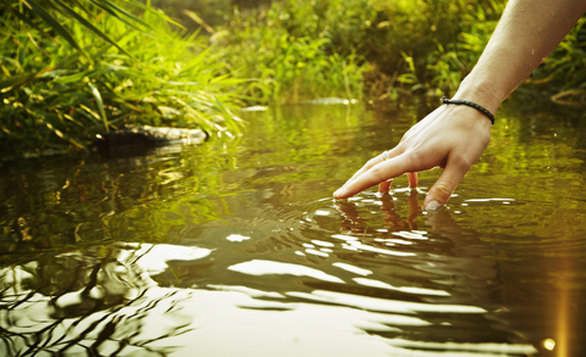 Take a step back and consider the exquisite network of systems that sustain life on Planet Earth. The air we breathe, the food we eat and the ground we walk on are all carefully regulated by natural systems in an intertwined dance — which means that any change we make in our environment can set off a chain of unexpected reactions. In this week’s TED Radio Hour, four speakers discuss the delicate balance of nature and offer up bold ideas for restoring equilibrium.
Take a step back and consider the exquisite network of systems that sustain life on Planet Earth. The air we breathe, the food we eat and the ground we walk on are all carefully regulated by natural systems in an intertwined dance — which means that any change we make in our environment can set off a chain of unexpected reactions. In this week’s TED Radio Hour, four speakers discuss the delicate balance of nature and offer up bold ideas for restoring equilibrium.
The episode kicks off with an inspiring call to action by environmentalist George Monbiot, who wants to reintroduce missing species to their natural habitats. In his talk from TEDGlobal 2013, he shares the story of the wolves in Yellowstone Park, whose populations had dwindled, leading to an overpopulation of deer. When wolves were reintroduced, the natural balance was reset: vegetation returned to normal; bear, beaver and badger populations rose; even river flow improved. The environment is self-regulating, says Monbiot in his talk, and humans need to step back and let nature do its work.
The next guest is Jane Poynter, who spoke at TEDxUSC in 2009 about the two years she lived in Biosphere 2. In the 1990s, she and seven others sealed themselves off from the outside world with only plants, livestock and insects to sustain them. The experience highlighted the delicate balance between all living organisms. Says Poynter, “I became a part of that biosphere. When I breathed out, my CO2 fed the sweet potatoes that I was growing. And those sweet potatoes became a part of me. In fact, we ate so many, I turned orange. I literally was eating the same carbon over and over again. I was eating myself in some strange sort of bizarre way.”
Next up in the episode is Bernie Krause, the bioacoustician who spends his days recording wild soundscapes. In his talk from TEDGlobal 2013, Krause discusses the beautiful symphony of nature, and the troubling silence he has observed in recent years. Since he started recording ecosystems in the 1970s, he estimates that more than 40% of the sounds he’s captured have fallen quiet, radically altered by the practices of humans. This is akin to erasing all of the music composed by Mozart from the human sound library, Krause says, stressing that listening to the biophony can offer essential understanding of the unique balance around us.
The episode closes with Marla Spivak, a biologist who is worried about the future of bees in the United States. Bees are vital to the pollination of many of our fruits and vegetables, but they’re grave in danger. As Spivak shared at TEDGlobal 2013, a third of bee colonies in the US are dying off every year, because of lethal mix of pesticides, changes in farming practices and a lack of meadows. The solution is simple, says Spivak — go plant some flowers.
In the end, it’s an episode that will make you hyper aware of the effect we can have on the natural world. But as much damage as we are able to do, we also have the power to restore.
Listen to “Everything is Connected” via the NPR website »
Or head to iTunes, where the podcast is available for download now »
Photo courtesy of: Getty Images
Comments (54)
Pingback: How Wolves Change Rivers | West County Explorers Club